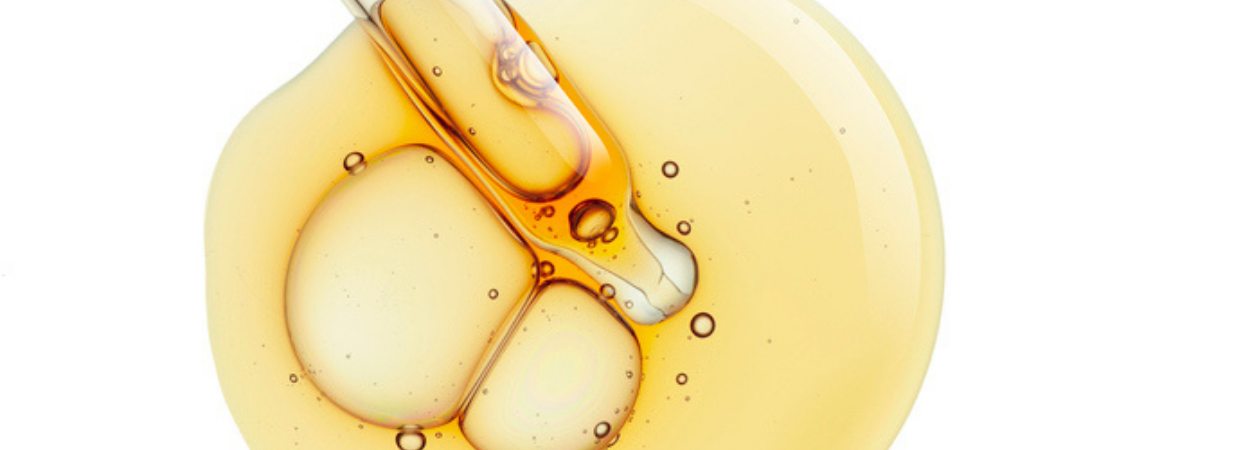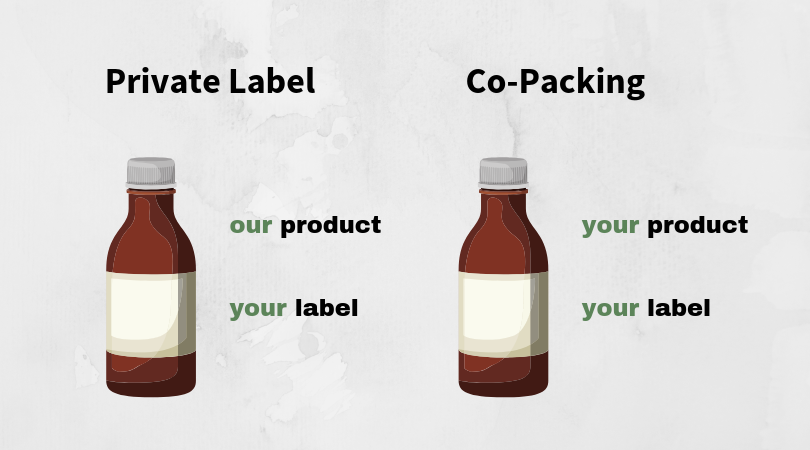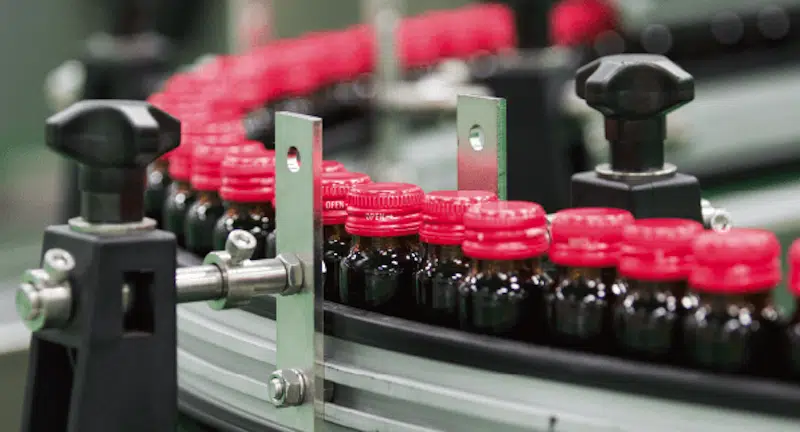Have you ever dreamed of launching your own brand in the trillion-dollar wellness industry, only to be stopped by the thought of massive R&D costs, complex manufacturing, and regulatory hurdles? It’s a common roadblock that holds many brilliant entrepreneurs back. But what if there was a smarter, faster, and more accessible path to market?
There is. It’s called private label liquid supplements.
This proven model is the secret weapon for thousands of successful brands, from niche e-commerce startups to established retailers. It allows you to bypass the most challenging parts of product creation and focus on what you do best: building a brand your customers will love. This guide is your complete roadmap, walking you through every step of the process—from a simple idea to a market-ready product.

Why Liquid Supplements Are a Golden Opportunity for Your Brand
While pills and powders have their place, the future of wellness is increasingly fluid. For aspiring brand owners, choosing a liquid format isn’t just a choice—it’s a strategic advantage. Here’s why this booming market segment presents a golden opportunity.
- Superior Absorption and Faster Action: The body can absorb nutrients from a liquid more efficiently than from a compressed pill or powder that needs to be broken down first. This superior bioavailability means your customers feel the benefits faster, leading to higher satisfaction and repeat purchases. It’s a powerful selling point: “Our formula works faster because it’s in its most readily available form.”
- A Better Consumer Experience: Let’s be honest, nobody enjoys swallowing a handful of large pills. This phenomenon, known as “pill fatigue,” is very real. Liquids offer a pleasant, easy-to-take alternative. They are the perfect solution for children, older adults, and the significant portion of the population that has difficulty swallowing pills.
- Flexible and Customizable Dosing: Unlike pre-measured capsules, liquids allow for precise and flexible dosing. A consumer can easily adjust their intake based on their specific needs, a feature that adds a layer of personalization and value to your product.
- Growing Market Demand: Consumers are actively seeking out more effective and convenient wellness solutions. The market for liquid supplements is on a significant upward trend, driven by a more educated consumer base that understands the benefits of higher absorption rates. Tapping into this demand now positions your brand for future growth.
What is Private Labeling? (And How It Differs from White Label)
Understanding the terminology is the first step. While often used interchangeably, “private label” and “white label” represent two distinct business models. Choosing the right one is critical for your brand’s strategy.

Private Label: Your Unique Brand, Your Unique Formula
Private labeling is a partnership where a contract manufacturer produces a unique formula exclusively for your brand. You have two main options:
- Create a Custom Formula: You work with the manufacturer’s R&D team to develop a brand-new, proprietary formula from scratch. This gives you maximum differentiation in the market.
- Modify an Existing Formula: You start with one of the manufacturer’s proven base formulas and customize it by adding, removing, or adjusting ingredients, flavors, or concentrations.
This model gives you ownership and exclusivity over your product’s formulation.
White Label: A Ready-to-Go Solution
White labeling is a simpler approach. The manufacturer produces a generic, market-tested product that is then sold to multiple brands. You simply design and apply your own label to this existing product. There is no formula customization involved. It’s the fastest way to get to market, but your product will be identical to other brands using the same white-label supplier.
Which Model Is Right for Your Business?
| Merkmal | Private Label | White Label |
|---|---|---|
| Exclusivity | High: The formula is unique to your brand. | Low: The same product is sold by others. |
| Customization | High: Full control over ingredients and flavor. | None: You only customize the label. |
| Time to Market | Slower (due to R&D and testing) | Fastest |
| Initial Cost | Higher (may involve formulation fees) | Unter |
| Am besten für | Brands wanting a unique competitive edge. | Brands wanting to test the market quickly. |
For most entrepreneurs serious about building a long-term, defensible brand, private labeling offers the ideal balance of control, uniqueness, and scalability.
The 7-Step Process: From Idea to Market-Ready Product
So, how do you actually bring a private label liquid supplement to life? We’ve broken it down into a clear, seven-step process. Think of this as your project plan.
- Step 1: Define Your Niche and Product Before you contact any manufacturer, you need a vision. Who is your target audience? What problem are you solving? Are you targeting athletes with a recovery formula, busy professionals with a focus blend, or families with a children’s multivitamin? A clear niche will guide all subsequent decisions.
- Step 2: Find a Certified Manufacturer This is your most important partnership. You’re not just looking for a supplier; you’re looking for a partner in your success. (We’ll cover how to choose one in the next section). Do your research, vet multiple candidates, and prioritize quality and trust above all else.
- Step 3: Formula Development & Customization This is where your vision becomes a reality. You’ll work with the manufacturer’s formulators and food scientists. Whether creating a new formula or modifying a base, this stage involves selecting ingredients, determining potencies, and perfecting the flavor profile.
- Step 4: Branding & Packaging Design While the manufacturer works on the formula, you work on the brand. This includes designing your logo, label, and choosing your bottling and packaging. Your branding must be compliant with FDA labeling regulations, something a good manufacturer can help you navigate.
- Step 5: Production & Quality Control Once you approve the final formula and label design, production begins. A reputable manufacturer will follow strict GMP (Good Manufacturing Practices) protocols, conducting rigorous testing at multiple stages to ensure the purity, potency, and safety of your product.
- Step 6: Regulatory Compliance & Documentation Your manufacturing partner should provide you with all necessary documentation, such as a Certificate of Analysis (COA) for your finished product. This document verifies that your product meets all label claims and is free from contaminants.
- Step 7: Launch & Marketing With your finished, packaged product in hand, it’s time to launch! This is where your focus shifts to marketing, sales, and building a community around your brand.
How to Choose the Right Private Label Liquid Supplement Manufacturer
Your choice of manufacturer can make or break your business. Don’t rush this decision. Use this checklist to vet potential partners and ensure you’re working with the best.
- ✅ Certifications Are Non-Negotiable: Look for a facility that is, at a minimum, FDA Registered und GMP Certified. These certifications ensure they adhere to strict quality, safety, and documentation standards. Additional certifications like NSF or USDA Organic are a huge plus.
- ✅ Low Minimum Order Quantity (MOQ): For a startup, cash flow is king. A high MOQ can tie up your capital in inventory before you’ve made a single sale. Look for a partner with a low, accessible MOQ. This shows they understand and support startups.
- ✅ Formulation Expertise & R&D Support: Do they have a team of experienced scientists and formulators? A great partner acts as a consultant, helping you create an effective, stable, and great-tasting product. Ask about their R&D capabilities.
- ✅ Transparency and Communication: A good partner is transparent about their process, pricing, and timelines. Are they responsive to your questions? Do you have a dedicated point of contact? Clear and consistent communication is a sign of a healthy partnership.
- ✅ Lead Times and Fulfillment Options: Ask for a realistic timeline from formula approval to finished product. Some manufacturers also offer additional services like warehousing and fulfillment, which can simplify your operations significantly.
Popular & Profitable Liquid Supplements to Private Label
Need some inspiration? Here are some of the most popular and commercially successful categories in the liquid supplement space:
- Liquid Multivitamins: A foundational product for any health brand, catering to a broad audience.
- Vitamin D3 + K2: A highly sought-after combination for bone and immune health.
- Liquid Collagen: An incredibly popular product in the beauty and anti-aging niche.
- Herbal Tinctures: Single-herb or blended formulas like Turmeric (for inflammation), Ashwagandha (for stress), or Elderberry (for immunity) are in high demand.
- Children’s Supplements: Parents are increasingly seeking clean, effective, and easy-to-administer liquid vitamins for their kids.
- Liquid Nootropics: Brain-health supplements for focus, memory, and cognitive performance are a rapidly growing market.

Understanding the Costs: What to Budget For
One of the first questions every entrepreneur asks is: “How much is this going to cost?” While the exact price depends on your specific project, it’s helpful to understand the cost structure.
- Einmalige Kosten: These are upfront investments to get your project started.
- Formula Development: Some manufacturers charge a fee for custom formulation work.
- Label Design: The cost of hiring a graphic designer for your branding.
- Initial Setup Fees: Some partners may have a one-time fee for new clients.
- Pro-Einheit-Kosten: This is the cost to produce each bottle of your supplement.
- Ingredients: The primary cost driver. Unique or premium ingredients will increase the price.
- Bottling and Packaging: The cost of the bottle, cap, seal, and box.
- Manufacturing & Labor: The cost to mix, produce, and bottle your product.
- Testing: The cost of quality control and third-party testing.
The Impact of MOQ: Your Minimum Order Quantity has the biggest influence on your per-unit price. As a rule, the larger your order quantity, the lower your per-unit cost will be. It’s a balance between managing your upfront investment and achieving a healthy profit margin.
Häufig gestellte Fragen (FAQ)
1. What is the typical MOQ for private label liquid supplements?
This varies widely, but many startup-friendly manufacturers offer MOQs starting between 500 and 1,500 units.
2. How long does the private labeling process take?
From finalizing your formula to receiving the finished product, a typical timeline is 8-12 weeks. Custom formulas may take longer.
3. Can I customize the flavor of my liquid supplement?
Absolutely. Flavoring is a key part of the development process. A good manufacturer will have a library of natural flavors and sweeteners to help you create a product your customers will love.
4. How do I know if my product is compliant with FDA regulations?
Your manufacturing partner should be an expert in FDA labeling requirements and GMP compliance. They are your first line of defense in ensuring your product is safe and legal.
5. Is selling private label supplements profitable?
Yes, it can be highly profitable. By cutting out the middleman and owning your brand, you can achieve significantly higher profit margins compared to reselling other brands’ products. Success depends on creating a quality product and a strong marketing strategy.
It’s Time to Build Your Brand
The path to launching your own supplement brand is more accessible than ever before. Private labeling removes the barriers that once stood in the way, empowering you to bring your unique vision to the wellness market. It’s a journey that requires research, planning, and the right partner, but the rewards—both financial and personal—are immense.
This isn’t just about selling a product; it’s about building an asset and creating a brand that genuinely helps people on their health journey. It’s an exciting prospect, and the first step is right in front of you.
Ready to explore the possibilities for your brand? Contact a supplement manufacturing specialist today for a free, no-obligation consultation and start building your dream.


